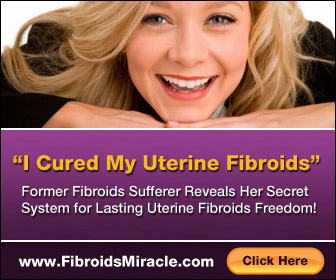It’s frustrating that the main cause of fibroids is still unknown. Treatment for fibroids nowadays is all about decreasing the risk for further growth and development. This is done through diet, exercise, and monitoring of weight.
There are, however, many supplements with flavonoids, or anti-estrogenic components, that decrease this risk as well. Although not much research has been done on this, it has been a popular option in the recent years.
The good thing is, flavonoids can be found in fruit, vegetables, chocolate, and wine. They work on the body by blocking an enzyme needed for estrogen biosynthesis. No more estrogen means no more fibroid growth.
Resveratrol: Red wine’s secret ingredient
Resveratrol is the flavonoid found in red wine. It’s also found in grapes, blueberries, and peanuts, but what activates the resveratrol is the fermentation process. This is why red wine is the most effective.
A research conducted at the University of Michigan revealed that resveratrol is able to shrink fibroids—at least, when they tried it out in a test tube. When tried on animals, it seemed the resveratrol supplement was unable to reach the bloodstream in quantities sufficient enough to have an effect.
Many animals did enjoy the benefits, such as worms, flies, and mice. Most promise was seen in the studies with mice. Still, it’s important to note that only 6 out of 10 positive drug effects on mice will fail for humans.
The opposite effect?
Many point out that Resveratrol is a phytoestrogen, meaning it might actually be worsening uterine fibroids. This is mainly true for the Resveratrol present in red wine, as alcohol consumption itself is what promotes fibroids thanks to the damage it does to the liver.
Basically, a supplement would be a better bet than drinking red wine all day. Only 1 to 2 milligrams are present in the average bottle of wine, which is way too little. Resveratrol supplements may be better.
Final note: They are safe to use, but it might not work.
Wheatgrass: Packs a nutritive punch
Since uterine fibroids grow due to excess estrogen, then reducing the intake of estrogenic influences is a reasonable solution to shrinking fibroids naturally. Many do this through refraining from eating processed and unhealthy food as mentioned before.
Drinking wheatgrass juice has also been a recent popular solution. Wheatgrass has nutritive properties that are best consumed as fresh juice or as an herbal supplement. Like red wine, it has detoxifying effects that can help shrink fibroid tissue.
Additionally, wheatgrass assists with a two-fold problem that women with fibroids face—constipation and anemia. Anemic women need iron supplements, which then cause constipation. Wheatgrass is a great natural alternative that treats both, thanks to its iron content and detoxifying, nutritive qualities.
Whether wheatgrass is worth your while
Fresh wheatgrass has lots of vitamins and nutrients, like iron, calcium, magnesium, and amino acids. Not all of these are very potent in supplement form, so juice is more recommended for a higher chance of effectivity.
Although studies have shown that its antioxidant benefits do prevent cell damage, this has only been definitively proven in test-tube and animal studies. No human studies have sufficient enough data to assure that wheatgrass does work for fibroids.
Only few testimonies have positive things to say on the matter. As such, this is still safe to use, but not assuredly effective.


